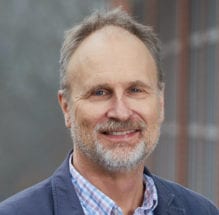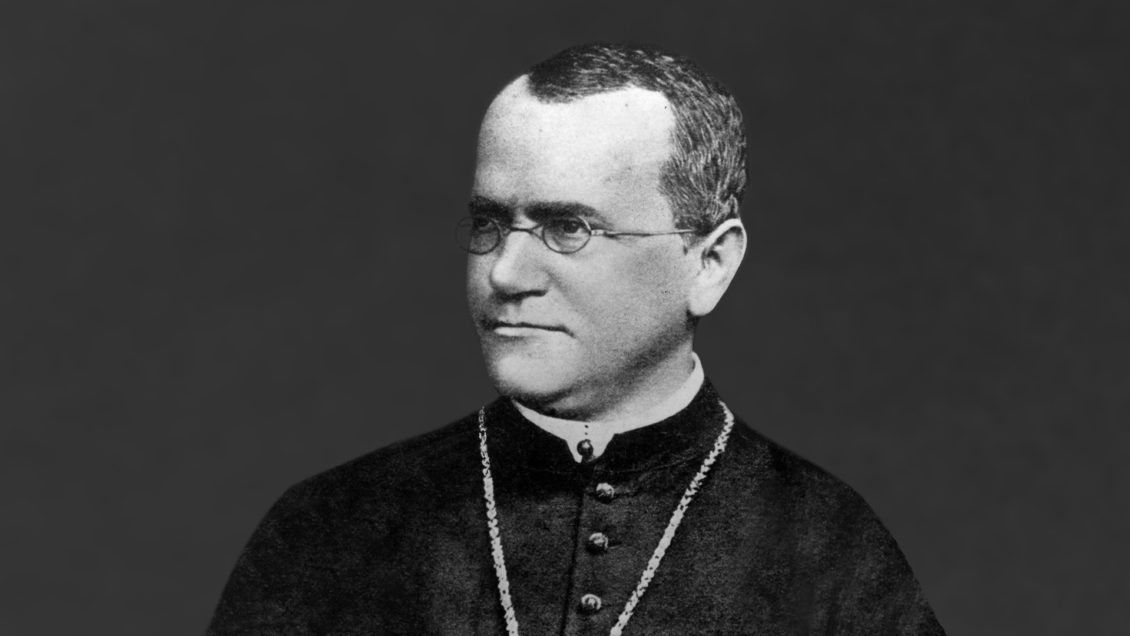Today is Gregor Mendel’s 200th birthday and celebrations are being held all across the globe.
Why the fuss over an Augustinian monk from the 1800s who grew peas in the garden of the abbey where he lived?
Because breeding and studying those pea plants led Mendel to discover the fundamental laws of inheritance, earning him wide recognition as the father of modern genetics. Today, researchers from Clemson University and those across the world are using genetics in ways Mendel would never have dreamed — for personalized medicine that tailors disease prevention and treatment, to breed drought- and disease-resilient crops, and to improve the health of agricultural crops and animals.

“It all goes back to Mendel paying attention to what was happening right there around him. Mendel was the first person to really understand that traits can be quantified and inherited in a predictable way. That’s the foundation of genetics, full stop. That’s where it starts,” said David F. Clayton, chair of the Clemson University Department of Genetics and Biochemstry. “Of course, in the years since, such great progress has been made in how that actually happens.”
Back when Mendel started growing his pea plants, it was thought that traits in offspring were a result of a blending of traits of each parent, kind of like mixing paint.
Mendel studied seven traits of pea plants: seed color, seed shape, flower position, flower color, pod shape, pod color and stem length. He noticed when he cross-pollinated a pea plant with yellow pods with one that had green pods, he didn’t get plants with yellowish-green pods. Instead, all of them were yellow. However, when that crop self-pollinated, 75% of the second generation were yellow and 25% were green. Mendel concluded that each individual had two complete sets of inheritable factors, one from each parent. He attributed that generation-skipping to some characteristics being dominant and some being recessive.
Knowledge of genetics grows
Since then, our knowledge of genetics has grown by leaps and bounds. After all, Mendel didn’t know about genes or DNA, and sequencing of the human genome wasn’t completed until 2003.
Today, genetics is all around us, woven into our daily live in small and large ways.
- 8 a.m. — Breakfast. Take that bowl of corn flakes. Corn is one of the most important cereal crops in the world. But climate change threatens global food security. The lab of Rajan Sekhon, a plant geneticist and an associate professor in Clemson’s Department of Genetics and Biochemistry, focuses on research on improving yields of corn and other cereal crops. The research includes what triggers senescence, the process of aging in plants, and stalk lodging, when a stalk snaps prior to harvest, in corn.
- 10:30 a.m. — Doctor’s appointment. Genetic networks define an individual’s unique characteristics that — coupled with lifestyle habits and other environmental factors — determine susceptibility to cancers, hypertension, high cholesterol, arthritis, diabetes, Alzheimer’s disease and numerous other ailments. Clemson researchers are unlocking these genetic codes through the Center of Biomedical Research Excellence in Human Genetics in collaboration with the Greenwood Genetic Center.
- 1 p.m. — Mow the lawn. Genetics and Biochemistry Professor Hong Luo is developing perennial grasses that can thrive in adverse conditions and reduce water use.
- 7 p.m. — Walk the dog. Leigh Anne Clark’s lab works to understand the underpinnings of diseases that affect dogs, including an often deadly esophageal disorder frequently found in German shepherds.
- 10 p.m. — Bedtime. Before that head hits the pillow, you might take some nighttime meds. Precision medicine customizes a person’s treatment for a disease based on their genetics and other factors. One focus in Professor Alex Feltus’ lab is identifying networks of genes involved in various cancersthat could be potential targets for more effective drug therapies.
The Clemson University Center for Human Genetics and the College of Science will celebrate Mendel’s birthday with a lecture by Daniel J. Fairbanks of Utah Valley University on Sept. 2 at 2:30 p.m. The lecture, “Gregor Mendel at the Bicentennial of his Birth: The Life and Legacy of a Scientific Genius,” will be held on Zoom. It is part of the College of Science’s Discover Science Lecture Series.
The College of Science pursues excellence in scientific discovery, learning, and engagement that is both locally relevant and globally impactful. The life, physical and mathematical sciences converge to tackle some of tomorrow’s scientific challenges, and our faculty are preparing the next generation of leading scientists. The College of Science offers high-impact transformational experiences such as research, internships and study abroad to help prepare our graduates for top industries, graduate programs and health professions. clemson.edu/science
Get in touch and we will connect you with the author or another expert.
Or email us at news@clemson.edu

